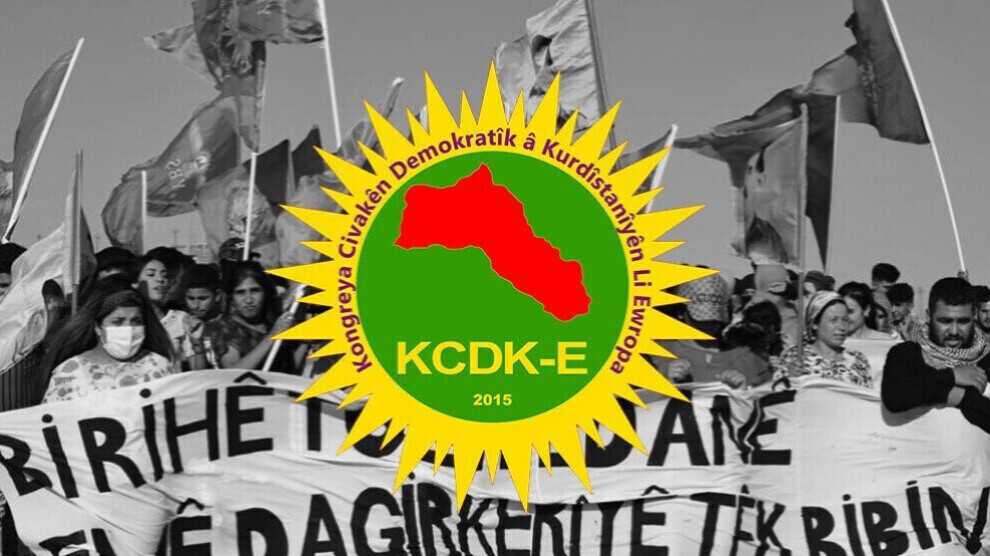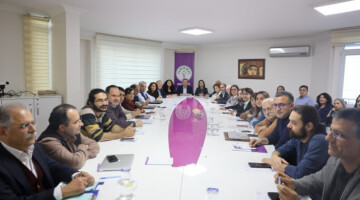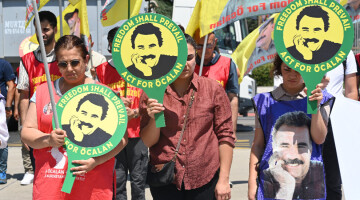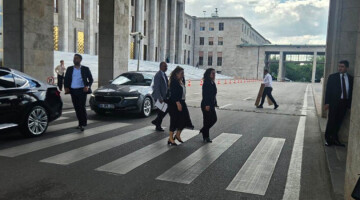The European Kurdish Democratic Societies Congress (KCDK-E) held a conference to restructure its work. The two-day conference was attended by delegates from all the institutions represented in the federation, such as the co-chairs of the local community centres, representatives of the women's, youth and cultural movements and the Muslim, Yazidi and Alevi faith communities. The conference took place on 11 and 12 December and the delegates represented all parts of Kurdistan: Bakur, Rojava, Rojhilat, Başûr (North, West, East, South).
The KCDK-E assesses the results of the conference as successful and points out that the meeting took place at a significant time when the people of Kurdistan are struggling for their existence.
The final declaration released by KCDK-E on Thursday includes the following:
"A fundamental observation made at the conference was the importance of a mental transformation for building a democratic society. Without a transformation of the mindset, no social construction can take place. In the Kurdish liberation movement, the mental revolution is considered the starting point for the revolutionary struggle, which also includes dealing with one's own personality.
Abdullah Öcalan has always pointed out that all developments depend on a revolution of mentality, which is the only way to implement and permanently institutionalise the paradigm of a gender-just, grassroots democratic and ecological society developed by the Kurdish leader.
To build and develop a democratic-confederal system in this consciousness is a historic task. If we achieve a reconstruction based on this democratic, ecological and women's liberation paradigm, we can put an end to the ideological rule of the rulers and the massacres in Kurdistan. Building such a system means organising the people and thus making them a force with a will of their own that can govern itself. An organised society that changes and transforms is the guarantee for the success of the struggle for freedom, equality and a common life against colonialism, occupation and isolation.
In the discussion at the conference, it became clear that all individuals bear responsibility for restructuring and building society. We can bring about social change if all social groups organise themselves in the existing social centres and carry out political, social, economic or cultural projects and establish institutions according to their own needs. A society based on democracy, ecology and women's liberation comes into being when all social components organise themselves, make their own decisions and administer themselves.
Through organising and participation, it can be achieved that Kurds also live in Europe with their own identity and culture, instead of losing more and more of it and eventually being completely erased. In this context, it was self-critically stated at the conference that the insufficient understanding of the Öcalan paradigm was blocking its anchoring in society. This was especially true of the co-chairs of the social centres and other institutions. Without a mental revolution, all efforts are in vain; the emergence of an organised and self-governing society depends on education and a corresponding consciousness. Otherwise, a situation could arise in which, instead of further development through the constant repetition of the old, there is a threat of stagnation and regression. Free thinking, willpower and creativity are therefore necessary for work.
At the conference, it was decided to start an "organising mobilisation" in the Kurdish community centres and assemblies in Europe. The aim of this is to reach out to all Kurds living in Europe. "At the two-day conference on restructuring, discussions were held at a very high qualitative level and important decisions were taken. The atmosphere was one of high morale and enthusiasm."













